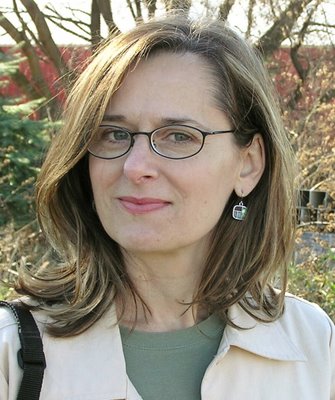
The kids are finally in bed.
I sit down heavily on the couch, pick up the remote, and hit "rewind."
And then listen to the videotape spin loudly back to the beginning.
Joseph can just watch the tape tomorrow.
It's probably fine.
But I can't get that description out of my head-- the one I read earlier on the PBS website that started out sounding good:
This Teen Connection will include teens and expert guests who will discuss juvenile diabetes, its treatment and work that is being done to find a cure for the disease, and develop new therapies for people suffering from it.
But then, in the second paragraph:
Life expectancy for patients with the disease is often 15 years shorter than others. For patients, complications including blindness, heart disease, strokes and kidney failure are ever-present possibilities.
That was enough.
Now, don't misunderstand-- Joseph is
well aware of the complications of this disease.
But still, he just turned twelve this month.
And recently, before going to bed he told me through tears that he's afraid of dying:
"I just want to be happy, and not think about it-- but sometimes when I go to bed at night, I'm scared."
Ryan joins me on the couch as I hit "play" on the remote.
A pretty young woman with dark hair welcomes us to the program-- and then tells us that:
"Every three minutes someone in the United States dies because of complications caused by diabetes."
Man."Tonight we're going to be talking with three teens who are living with Type 1 diabetes, and a doctor who specializes in treating the disease-- and we'll be taking calls from viewers."
She introduces her guests, and begins discussing their diagnoses, the symptoms of Type 1, and the differences between Type 1 and
Type 2. Then, a prerecorded video walks us through a detailed description of Type 1 diabetes.
And then the calls start coming in:
"I had a reading of 550," says an elderly male voice, "and I wasn't admitted to the hospital . . . should I have been admitted?"
"I have a son," says the voice of a worried mother, "and we have a lot of health issues in our family-- a lot of Type 2. [Should] parents be concerned?"
"I am in my mid-40's," another female caller says, "and I find myself every now and then craving something sweet . . . but as soon as I have it, I have an overwhelming need to lay down and take a nap and go to sleep-- is that a sign of possible diabetes?"
(Despite some of these questions, I start to wonder if I made the right decision-- if I should have just let Joseph watch this in real time so he could have participated in the dialogue.)
"Caller, go ahead with your question," says the perky, dark-haired host.
"I just wanted to say I have a comment," responds a young woman's voice. "I've been a diabetic for 21 years. I was diagnosed at the age of seven and I... um... had complications with my eyes... and now I'm completely blind at the age of 28."
I swallow hard, and stare at the screen-- at the three young people shifting uncomfortably on their stools.
In each of their frozen expressions, I see my son.
"I just recently got married," the caller continues, "and I had a baby. Blood sugars are in great control now . . . but from seven on up through 17, I was not in the best control."
Like me, Ryan sits there watching-- not saying anything for a few moments.
Just listening to this woman's story.
Willing it not to be our son's.
"Now I... um... you know -- without my vision -- can't see my baby's face, can't see my husband."
In response, the panel discusses how important it is to stay in good control-- and the wonderful statistics for those who do.
Even so, I keep hearing that voice-- long after we turn off the TV.







